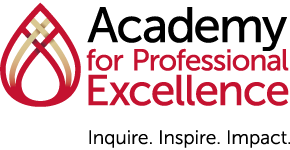
There is a common belief in the Health & Human Services industry that workforce development means training. However, training is just a slice of workforce development, and it is not the only answer to sustaining and evolving the workforce.
Studies have shown that developing meaningful partnerships and effective working relationships are key leadership qualities in child welfare, and can directly impact the staff’s performance.
Through collaborative relationships with partners and the workforce, leaders can move well beyond traditional training topics and modalities and evolve into a deeper and broader context for supporting the workforce from recruitment to retirement, consequently strengthening the quality of the work they provide.
How can we, as partners, provide technical assistance that supports you in your recruitment efforts? What can we do to support you in your leadership development so that your leaders can dedicate themselves to ongoing initiatives? How do we do coaching? Are there online learning opportunities that can contribute to continuing education? These are some of the different components we look at when we talk about workforce development in child welfare.
The Power of Relationships in Workforce Development
I like thinking about workforce development in child welfare and its connection to relationships. I had a good giggle a few years ago when I heard the story about the “Father” of Trauma-Informed Care using a curse word in front of a few thousand of his followers at a conference on the subject.
Not just because I love a well-placed curse word, because I do, but because he confirmed what many have figured out in this field – children in our system do not experience healing from programs but they are healed through the power of relationships.
His research confirmed that kids with strong committed relationships had better outcomes than those who did not. Similarly, if you have read Father Gregory Boyle from Homeboy Industries’ book, “Barking to the Choir, The Power of Radical Kinship,” he talks about the work of Homeboy Industries, which is the largest gang intervention, rehabilitation, and re-entry program in the world.
He explains it’s not the work programs or the tattoo removal that has made Homeboy so successful, it’s the kinship that is offered that makes the difference in the lives of former gang members. The key here again is relationships.
I would imagine that we could apply this very same learning from Trauma-Informed Care and Homeboys to our programming that workforce excellence at the core (or really at the heart) is about deepening relationships with the workforce.
Frances Frei, in a recent TED podcast about the three pillars of leadership, talked about moving the I from DEI – Diversity, Equity, and Inclusion – to the front of that acronym. She said that you can’t have sustainable diversity or equity programs if you don’t have the foundation of inclusion. Inclusion offers a sense of belonging. You belong in the context of relationships.
Why is workforce development so important in child welfare?
The work of the child welfare workforce matters in the best of times. By building personal relationships with their clients, they are able to support, hold hope, and help heal children and families in our communities every day. During this seemingly impossible crisis, we see how hard and how quickly they have pivoted to keeping children safe and families connected all while facing their personal uncertainty navigating this new world of social distancing.
To focus on workforce development in child welfare is to focus on better outcomes for the families and communities we serve. In order to ensure children’s well-being, that their physical and emotional safety are achieved, and that they all have lifelong supportive connections through emotional or legal permanency, the workforce must have these needs met through their own well-being, safety, and permanency at work.
What are some strategies that are in service of deepening and growing into relationships with our workforce?
1 – Inquire. Inspire. Impact: Enhance organizational culture by implementing the Academy’s I3 Framework to inquire with humility, inspire with heart, and impact mindfully.
This includes using frequent and transparent communication to build trust and ensure your staff is informed, regularly assessing workloads and managing in a way that promotes workload equity, and providing equitable and consistent developmental opportunities to your staff.
2 – Build connections: Help your staff stay connected to one another and to genuinely know and care about one another. Research shows that having genuine relationships with people you work with leads to better teaming and collaboration.
3 – Know your values and your purpose: Ensure your staff is well versed in your mission, purpose, and core values, and that they understand how these guide every interaction with your partners, co-workers, and the community. What is your agency’s belief? Why does your agency exist? What role does your staff play in achieving your mission?
4 – Build a healthy culture: The child welfare field often experiences high turnover due to the demanding pace, intense nature of the work, exposure to trauma, and other factors. Therefore, it is particularly important to pay attention to the experience your employees have within the walls of your organization so they can be their best while working in the field.
5 – Use evaluation methods: Focus Groups, Logic Modeling, Workforce Surveys, Data Modeling, and Fidelity Assessments are all examples of using continuous quality activities to support your understanding of targeted needs and potential supports for your workforce.
6 – Cultural responsiveness: Implement cultural responsiveness programs to allow your workforce to explore cultural differences, recognize potential individual and organizational biases, and practice culturally responsive behaviors through facilitated discussions.
7 – Invest in workforce development opportunities: Ensure that your workforce has the knowledge and skills needed to perform the tasks in Child Welfare Services (CWS). Modalities include Core and Advanced training classes, eLearning courses, MicroLearnings, Coaching, and Simulation.
Ready to empower your workforce?
The workforce matters, their work matters, and your leadership matters. Begin investing in your relationships with the workforce and experience better outcomes in your agency and community.
Looking for additional resources on workforce development? Take a look at our SACHS Research findings.
Written by Amy Jaffe, CWDS County Consultant, Los Angeles, and Ventura; Renee Duci, CWDS Training Operations Manager


